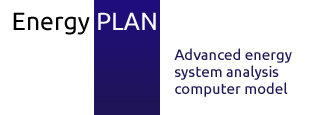IKARUS is a dynamical bottom-up linear cost-optimization scenario model for national energy-systems, which is maintained by the Institute of Energy Research at Research Centre Jülich, Germany [1]. To date 20 versions have been released: the current version is not commercially available but the earlier versions are for approximately €250. To use the model at least three months of training is necessary.
A time-step of five years is used and each one is optimized by itself using the heritage from all periods before. The model can simulate up to 40 years (usually up to 2050). Contrary to perfect-foresight models, this model does not take into account future changes in each time-step during the optimization to provide a realistic character of prognosis and projection. Aspects like reaction on sudden changes (e.g. of energy prices), flexibility of technical scenarios, lost opportunities etc. can be examined. Interactions with macroeconomic input/output models, dependencies on elasticities, technological learning etc. are possible. The objective function is normally to reduce total system costs, but can also be any other function such as emissions reductions. The model simulates all sectors on the energy-system, and almost all generation, storage, conversion and transport technologies: the only technologies not considered are wave, tidal, and compressed-air energy-storage.
Some investigations that IKARUS has contributed to are an investigation into the role of Carbon Capture and Storage (CCS) in reducing carbon emissions [2], the effects of stochastic energy prices on long-term energy scenarios [3], the introduction of fuzzy constraints to provide a better representation of political decision processes in the energy economy and energy policy [4], and the implications of high energy prices [5].
References
- Systems Analysis and Technology Evaluation, Forschungszentrum Jülich Institute for Energy Research, 15th June 2009, http://www.fz-juelich.de/ief/ief-ste/index.php?index=3
- Martinsen, D., Linssen, J., Markewitz, P. & Vögele, S., CCS: A future CO2 mitigation option for Germany?–A bottom-up approach. Energy Policy, 35(4), pp. 2110-2120, 2007.
- Krey, V., Martinsen, D. & Wagner, H.-J., Effects of stochastic energy prices on long-term energy-economic scenarios. Energy, 32(12), pp. 2340-2349, 2007.
- Martinsen, D. & Krey, V., Compromises in energy policy–Using fuzzy optimization in an energy systems model. Energy Policy, 36(8), pp. 2983-2994, 2008.
- Martinsen, D., Krey, V. & Markewitz, P., Implications of high energy prices for energy system and emissions–The response from an energy model for Germany. Energy Policy, 35(9), pp. 4504-4515, 2007.



